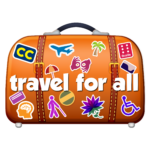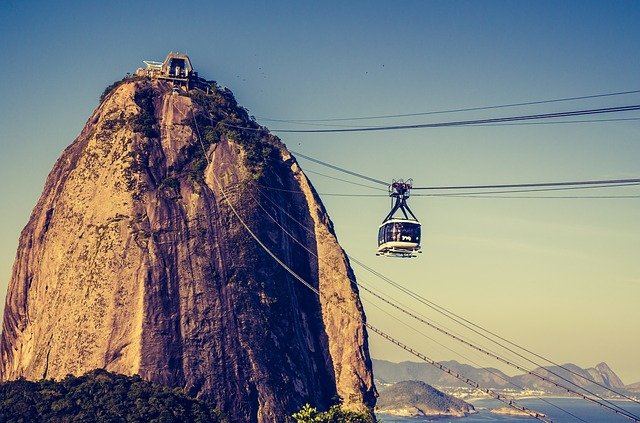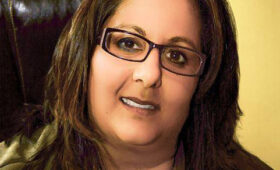Having a physical disability or a child with special needs should not exclude anyone from traveling, but you may need to spend some extra time planning to have the trip of a lifetime.
One time I went to Mexico on a trip. I had planned to stay in a hotel that advertised that it was accessible. However, once I arrived, I realized it wasn’t. To solve this problem, I quickly got on the phone, found another resort that was accessible and moved. I realized that this problem could happen to other people with special needs, and they might not know what to do.
This Mexico trip highlights the top three issues facing travelers with a disability – correct information, the right accommodations and access. One of the advantages I have by having multiple sclerosis and special needs is that I’ve not only encountered most of the problems people with special needs have when they travel, but I’ve learned how to solve these problem quickly and efficiently and not lose any of the joy of traveling. Also, because I’ve been to many of the countries and the facilities I recommend, I can tell my clients exactly what to expect and why I feel this particular facility will be best for them. About 11 years ago I started my own company, Tarita’s Travel Connections, now known as Travel-for-All
My motto is, “Travel should be inclusive – not exclusive.” My goal is to make the world accessible.
How I Got in the Travel Business
When my doctor told me I needed to change careers, I began to read the local newspaper to see what jobs I could find. I discovered an ad for a local travel agency. The ad read, “We’re looking for someone who travels a lot and who enjoys people to come and join our agency.” I really enjoyed traveling, and I loved people. I felt that ad was describing me. I met the fellow who owned the agency. He hired me on the spot, and I stayed with that agency for 15 years. That’s where I learned how to arrange travel for people. I wasn’t in a wheelchair at that time. However, as my MS progressed, I had to start traveling with my wheelchair.
I eventually decided the time had come for me to stay at home instead of going to the office every day. I started my own business to help people like me who wanted to travel. I realized when I went into business for myself that I wouldn’t have a steady paycheck coming in every 2 weeks.
However, I also knew that 1 in 4 people had some form of disability, and that the largest population of people in the United States was baby boomers who were getting older. They couldn’t see, hear or walk as well as they did when they were younger.
So, under the broad term of people with disabilities, I recognized that there was a huge market of people who wanted to travel. They needed someone who could tell them what their experiences would be like. If they were overly concerned, I could arrange to have someone at each destination stay with them once they arrived at their destination, and until they left their destination. I also knew the hotels, the motels and the attractions I’d been to that really understood the needs of people with disabilities. They not only knew how to meet those needs, but they were happy to help.
1 in 4 people have some form of disability, but 4 out of 4 people love to get out and enjoy life!
How Many People with Disabilities Travel
One billion people worldwide have a disability. The travel market for people with disabilities is valued at 134 billion Euros per year. Travel is a worldwide business, so the Euro is the standard currency used to estimate the amount of money spent on travel by people with disabilities. I quickly recognized the need for a travel agent who:
- had a disability;
- traveled worldwide;
- understood the needs of people with disabilities;
- understood what hotels, motels and venues needed to have to take care of the needs of people with disabilities;
- had traveled to many places throughout the world; and
- could tell people who traveled what they could expect when they arrived at their destinations, interesting things to see in and around their destinations that were accessible and could solve problems they might need solved and answer questions before, during and after their trips.
How Travel Is Inclusive – Not Exclusive
Accessible travel is not only for people in wheelchairs. Accessible travel includes seniors, young people and people with other disabilities that some may think will limit their ability to travel.
Generally the best destinations for travelers with disabilities, due to laws governing accessibility, include North America, Europe and in particular Germany, Sweden and Copenhagen. We have plenty of resources to try and answer any questions or concerns that you may have about travel. For instance, I had a call from a fellow who was paralyzed, and he wanted to go to Amsterdam in Holland. I contacted the people I worked with in Amsterdam. I made sure everything he wanted to do and go to was wheelchair accessible. I checked out his hotel, the rides he wanted to go on and a small canal cruise that he wanted to take to be sure they all were accessible.
Once a person tells me what his or her disability is, and where he wants to go, I can make sure that all the hotels are accessible, the different types of transportation he wants to take are accessible, and all the events he plans to attend are accessible all along the routes he will be taking. Also, we can plan the trip for the length of time you want to stay. If you need special equipment on your trip, we can make sure it’s available.
For instance, on some trips, individuals may need lifts or hoists. When they reach their destinations, I make sure the lift or the hoists are there waiting for them. I also help identify savings, locating promotions and exclusive discounts for my clients.
I’m the fun leader. My job is to make sure you have fun wherever you go and whatever you want to do in the world of travel. Currently, I’m arranging fully-accessible African safaris. Too, one client wants to go to New Zealand, because he’s a big fan of “The Hobbit” film series. He’ll be able to go to the places where “The Hobbit” was filmed, because all those spots are accessible. I don’t believe there’s any place in the world that a person may want to visit, anytime he or she wants to, see anything he wants to see or do anything he wants to do that we can’t make all the arrangements for him to have the trip of a lifetime.
The world is taking notice of people with disabilities, and we’re seeing more of the world become accessible for people who want to travel. For instance, I’ve always wanted to travel to Venice, Italy, and go on a gondola ride. But I haven’t thought that’s possible, because I am in a wheelchair. However, Venice now has companies that have built machines that will pick you and your wheelchair up and lower you into a gondola. Now I can take a gondola ride just like everyone else and you can too!




